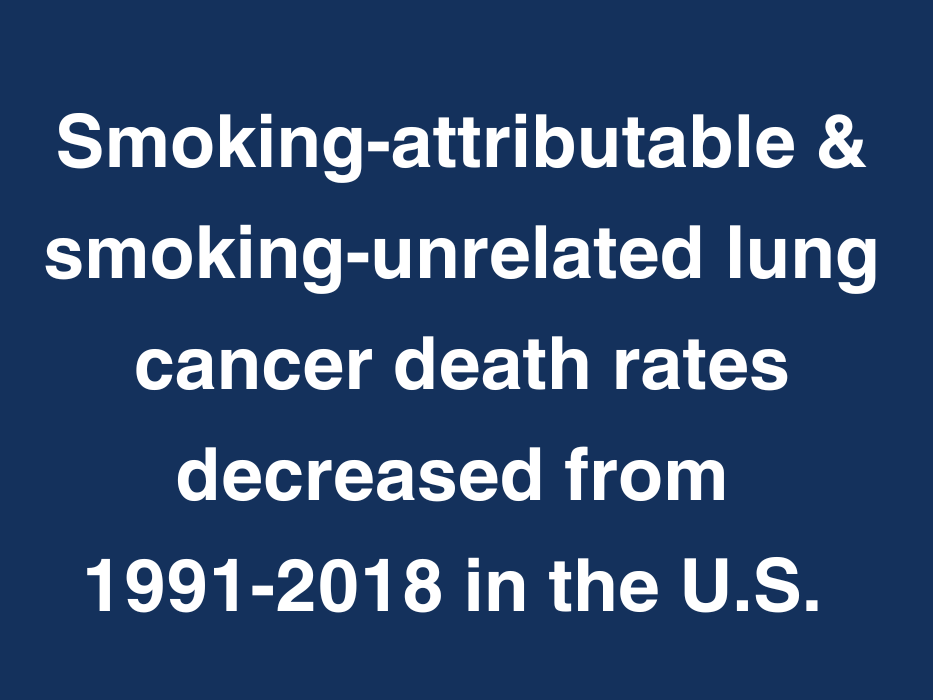NCI researchers have found a persistent decline in rates of both smoking-related and non-smoking-related lung cancer deaths.
In the U.S., lung cancer death rates have declined for decades, primarily due to decreases in cigarette smoking. However, it is unclear whether rates of smoking-unrelated lung cancer deaths are also decreasing. If the rates are increasing, that may suggest increases in exposure to other lung carcinogens that need to be investigated. Meredith Shiels, Ph.D., M.H.S., senior investigator in the Infections and Immunoepidemiology Branch, and colleagues in the Biostatistics Branch, the Division of Cancer Control and Population Sciences, and Information Management Services, conducted a study to estimate trends in U.S. lung cancer death rates from 1991–2018. They found that both smoking-attributable and smoking-unrelated lung cancer death rates declined over this period. The findings were published in the Journal of the National Cancer Institute on December 9, 2023.
Cancer registries and death certificates do not collect the smoking status of every person diagnosed with or who died from lung cancer. Thus, to estimate trends in lung cancer death rates by smoking status, the researchers needed another way to determine the age-specific trends in lung cancer deaths attributed to smoking, and unrelated to smoking. They estimated age-specific annual percentage of lung cancer deaths that could be attributed to smoking using smoking status data from the National Health Interview Survey linked to death certificate data. These population attributable fractions were then multiplied by national data on lung cancer mortality to estimate trends over time in smoking-attributable and smoking-unrelated deaths. The researchers found that the fraction of lung cancer deaths attributable to smoking decreased from 82% in 1991 to 75% in 2018. Over this same period, smoking-attributable lung cancer death rates declined 2.










Comments are closed.